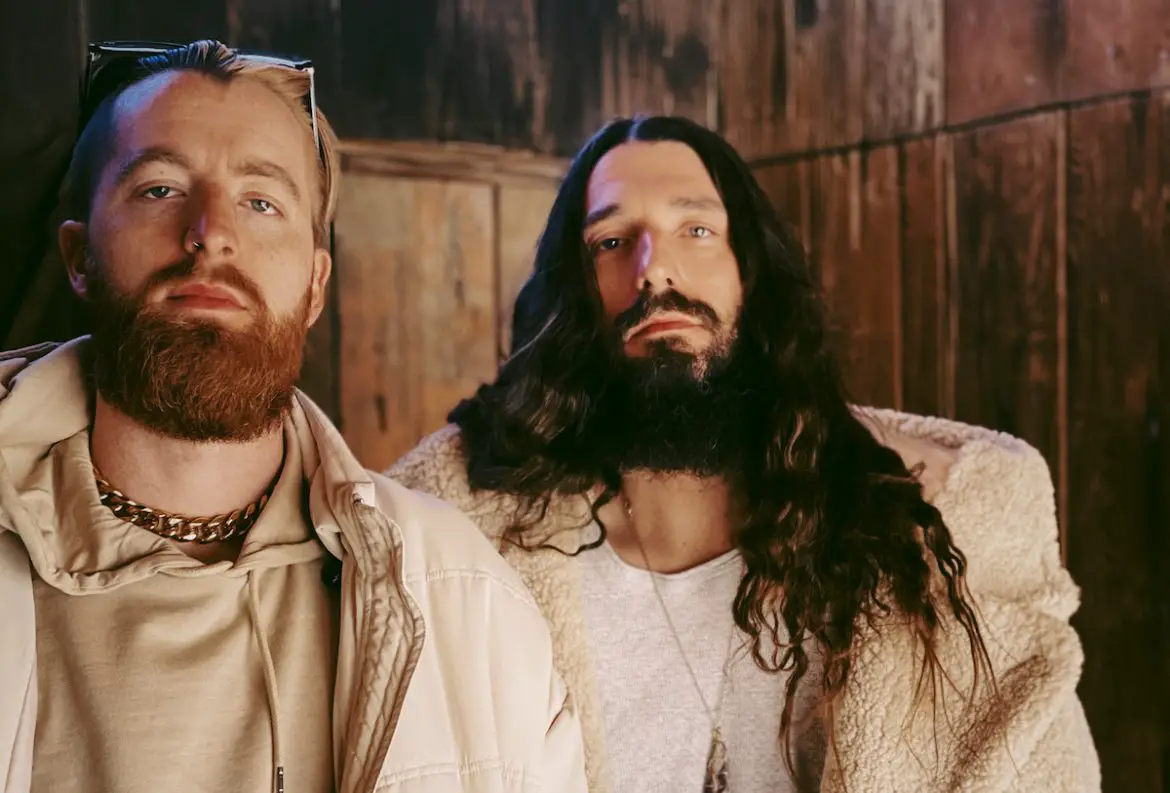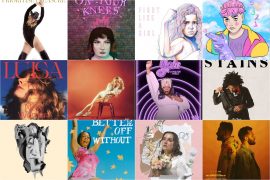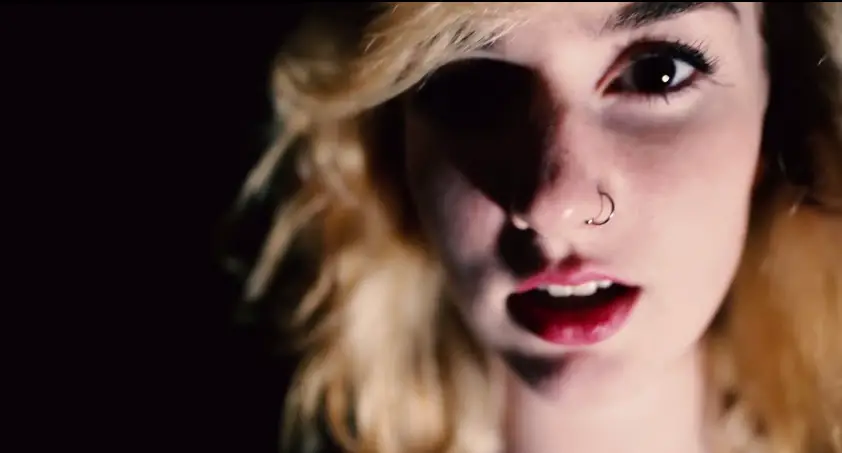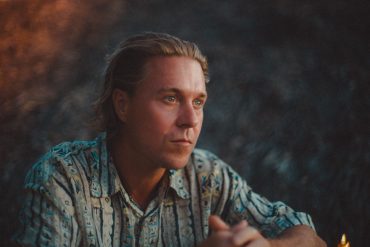MISSIO’s latest album ‘Skeletons: Part 3’ opens with a beating heart; it’s buoyed by acoustic strings and propelled by the kind of gothic keys played alone, at night, by a heartsick vampire.
Stream: ‘Skeletons: Part 3’ – MISSIO
MISSIO, an Austin based electro-alt duo, broke onto the scene in 2017 with their anti-façade rally cry, “Middle Fingers,” off their debut album Loner. Since then, this bearded dynamic duo have continued evolving personally and artistically by challenging themselves to stay creatively fluid and true to their original mission (MISSIO means mission in Latin): to call out to the brave warriors of life’s battles and make sure they know they’re never alone.
MISSIO’s latest release, Skeletons: Part 3, is a collection of their own previously recorded songs. Recreated through the rich and resonant voices of acoustic stringed instruments, it’s a hauntingly beautiful expression of MISSIO’s mission while displaying that the MISSIO boys are still challenging themselves to grow and evolve stylistically.

Getting to know Matthew Brue and David Butler, the masterminds behind MISSIO, is an exercise in studying duality. On one side of the coin, you have two men: so gentle with words and apt to discussing personal challenges, growth, and healing. Two men, so dedicated to writing and producing music intended to lend good company to those well acquainted with life’s challenges. Two men who celebrate, through their lyrics, that success is not solely measured by an end result but by the process it took to get there. They are the kind of people who you could imagine sitting beside on a park bench, discussing the vicissitudes of life.
And with all their well earned grace, there is yet another side to their coin, on which we find the very music that carries their lyrics into our ears and hearts. Charged with the kind of thunderous drums and bass that cannot go unfelt by the listener at any volume. While their music is not without its own kind of grace, it could be considered on the harder side of stirring, rattling, even jarring.
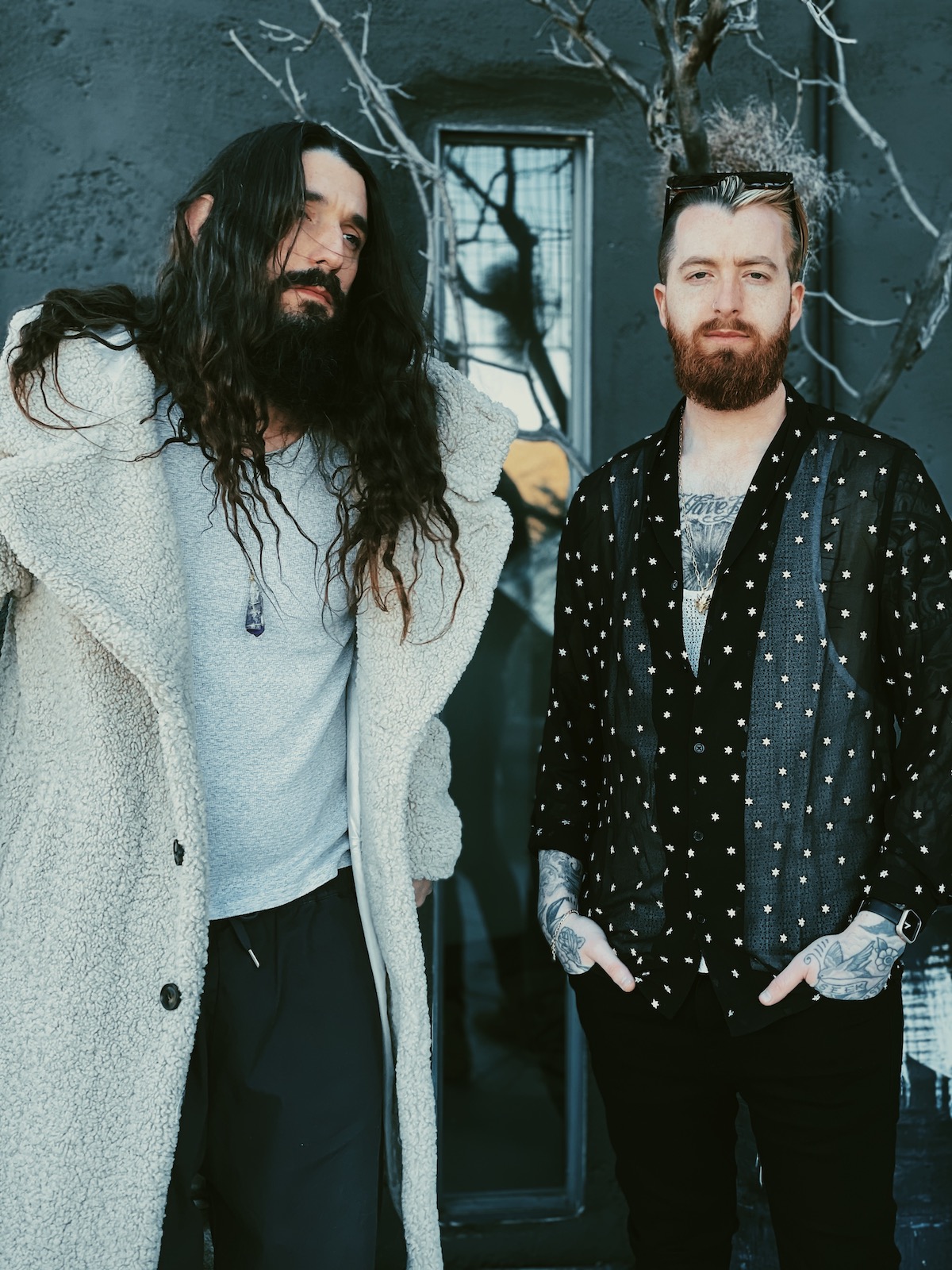
While MISSIO are cradling our collective heart with their words, they are powerfully rocking our body and soul with their “off kilter symphony” of impassioned drums, perfectly cockeyed beats, haunting piano runs, and vocals that expertly take us from a whisper to a cackle to a scream.
It makes perfect sense then, that after releasing their last album, Can You Feel The Sun (2020), an album that features more than one synth siren, MISSIO would follow up with Skeletons: Part 3, an album that opens with a beating heart, buoyed by acoustic strings and propelled by the kind of gothic keys played alone, at night, by a heartsick vampire having a tantrum. Skeletons: Part 3 is a new perspective, the other side of the MISSIO coin.
Like many of us, MISSIO’s 2020/21 plan was grounded by the pandemic, leaving them time to focus on creative adventures such as recording Skeletons: Part 3 and its accompanying short film. Thankfully, they were also able to spend some time discussing these creative endeavors with Atwood Magazine.
— —
:: stream/purchase Skeletons: Part 3 here ::
A CONVERSATION WITH MISSIO

Atwood Magazine: A couple of years ago, Matthew Brue and I went back and forth on Facebook Messenger about a post I wrote about your song “Monsters” on my music blog.
Matthew Brue: Oh yeah! To this day that’s still one of my top favorite MISSIO songs that unfortunately people haven’t really been able to hear yet. But I love that song.
I love it too.
Matthew Brue: So, you’re really an early MISSIO fan. That was one of the first that we came out with.
Well, I guess I am!
David Butler: Thank you so much. I love the early stuff and everything it stands for and what it sounds like and what it represents.
When you wrote Can You Feel The Sun, did you know that you would be releasing a few tracks on Skeletons: Part 3 and therefore writing both versions simultaneously, or were they two separate adventures?
Matthew Brue: While we really love the synth world, our goal is to be able to have a song in its electronic form, but when you pull it all back, you have the original song that can be sung with piano, guitar, cello…however we strip it down. We had always dreamed about working with a string quartet or a symphony of some kind. The lyrical content of these songs were speaking to the situations happening with COVID, we felt like this was the project to really lean in and make it as cinematic as possible. I’m still blown away when I listen to some of these recent Skeletons versions, because I can’t believe that shit is us.
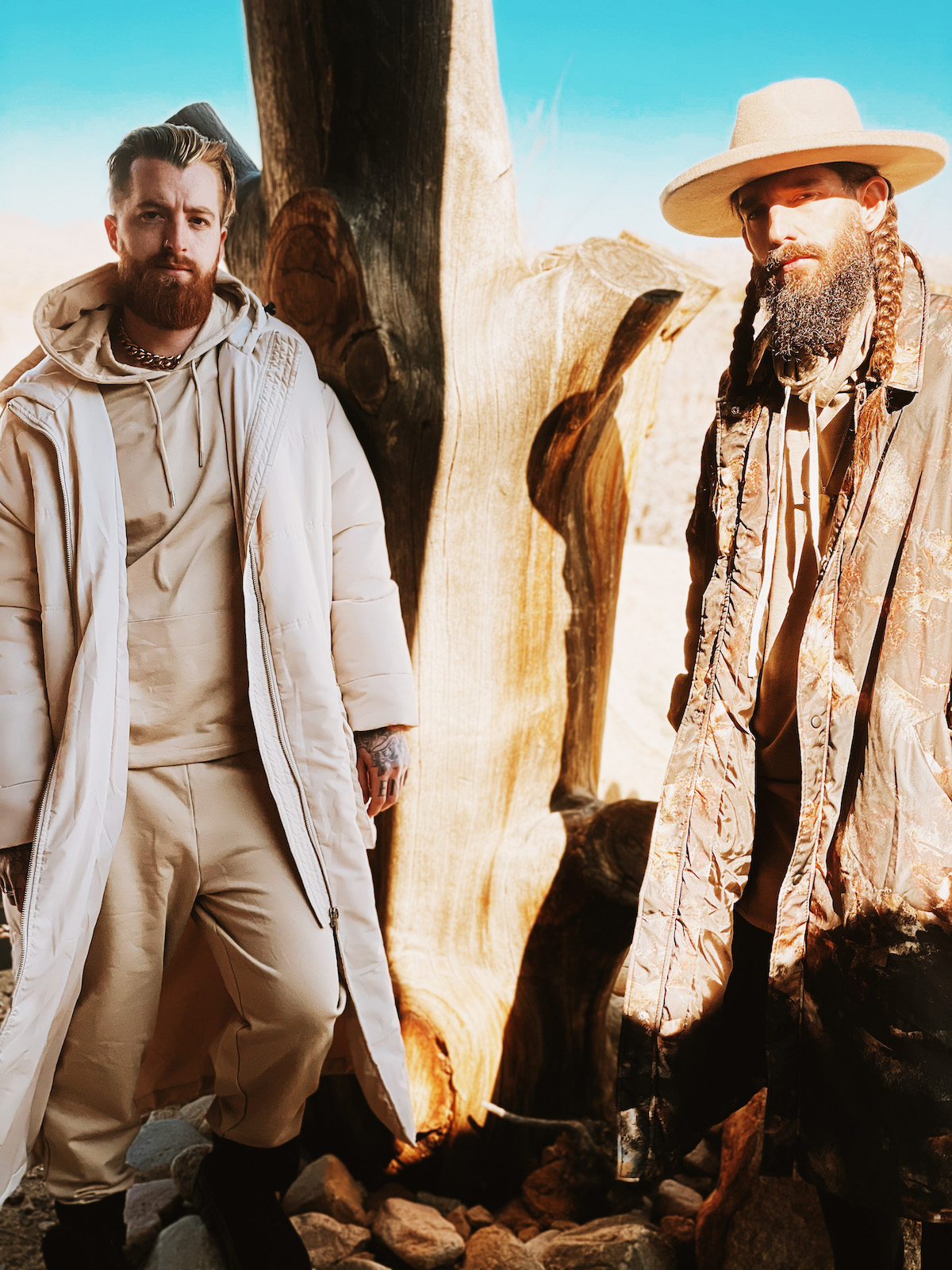
That’s the out of body experience of being a creative. On the very rare occasion that I go back and read my own writing, even the stuff from when I was really young, it feels like, “Did I actually write that?” It’s a strange disassociation. As if, when you are creating art a different part of your consciousness takes over. It's interesting that you guys are calling the Skeletons: Part 3 versions of these songs “stripped,” because they don't sound less than the original versions.
David Butler: As artists, it’s fun to have some sort of direction to go in…or a boundary that defines a project. We just slipped into the whole concept of it on the first record because we wanted to do some acoustic versions.
How did it affect you to be surrounded by all those dreamy instruments that are just so emotionally charged?
David Butler: Those musicians were so pro. Matthew grabbed lunch for everybody on the way into the studio and we were just blowing through the songs. They were one-taking it. We were like, “Hey let’s get another one of those…” stalling, so Matthew could get there. Thankfully, he made it in time. It was amazing to see and hear the life that comes from real instruments.
It is.
David Butler: Part of what the arrangements do is help people understand that they’re supposed to feel. Like when you hear the full version of a MISSIO song, the drums are so big and everything is hitting and the dynamics are so crazy; it’s easy to listen to it in a lot of different ways, and sometimes the heart of some of this stuff is buried. These alternate versions reveal the heart of the song from another perspective.
How did you create the tracks on Skeletons: Part 3?
Matthew Brue: When we did some of our earlier covers like “West Coast” [Lana Del Ray], we removed the vocal [track] and tried to figure out the most creative way to approach it. There’s an artistic freedom that comes from being able to experiment, because when we’re writing an album there’s a portion of it where if we want to have successful songs on the radio, there is a little bit of a format that you have to follow.
Sure.
Matthew Brue: But on a project like this, truly anything goes. It’s refreshing to strip a song back to a vocal and try it a different way. It’s a healthy exercise to re-approach your own songs. It helps us grow and learn more about production and what works.
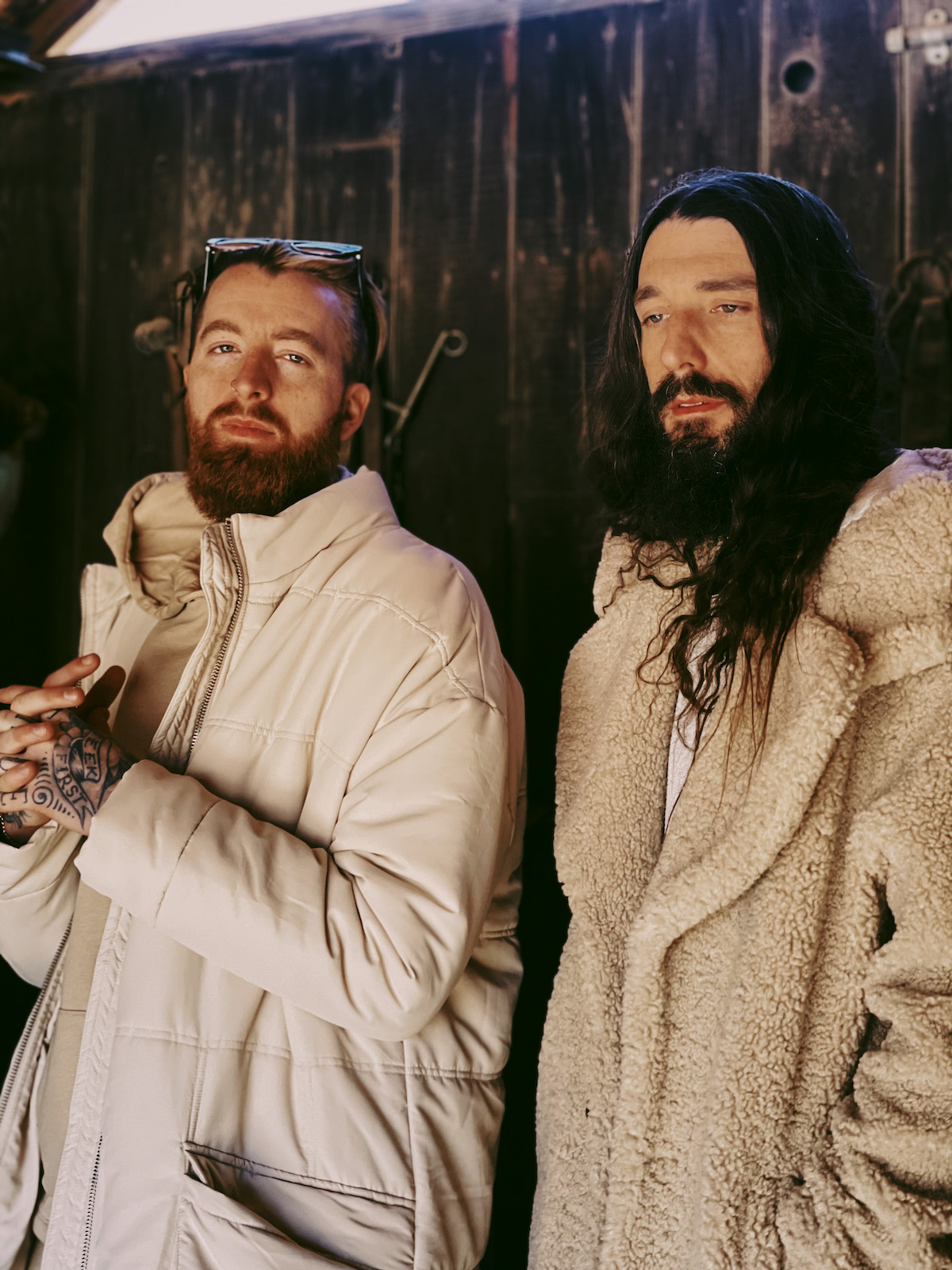
In your documentary, Love Me Whole, you discuss the pressures of going from your first album, Loner (2017) to your second, The Darker The Weather // The Better The Man (2019). So, when you know that you're going to have the opportunity for your songs to live a second life, does it take a bit of the pressure off?
Matthew Brue: Big time.
David Butler: Some amazing things have happened since that documentary. We realized that the pressures of making money while creating art will always exist. Actually meeting the MISSIO mafia fans all over the world brought us to this place of creative freedom. It allowed us to be confident in who we are and what we have to say.
I can imagine that a lot of people have been touched by your music. Musically, you’re always extremely visceral and lyrically so honest and vulnerable, without sounding pathetic. Your lyrics don't sound like they're coming from a “woe is me” kind of place. Has anyone ever reached out and said, “Here's my story, this is how you helped me”?
Matthew Brue: Much more than I ever thought they would. Lyrics are challenging because you want them to be meaningful and passionate without sounding pathetic. It’s a practice of being vulnerable with what you write first, and then trying to figure out how to write it. It’s a constant process of revising.
To see our lyrics moving people in a positive way is beautiful. We’ve gotten messages from people like, “I heard your song ‘I See You’ yesterday. I had been feeling really low and was considering committing suicide but that song made me think differently,” and it’s unreal, because that’s not me, that’s not David, that’s us being honest with our personal experiences and other people resonating with that. So there’s this spiritual part of what we do. It’s how the songs get to the right people, how they resonate with the lyrics and then how those people respond.
It’s out of our control and shows that honest, vulnerable and raw lyrics have an impact on people. Every time someone sends out a message that was probably tough for them to write, we thank them for listening and for responding in the way they did. It motivates us to keep creating and is a really special part of what we get to do. I never thought it would be as impactful. But I’m grateful that it is.
Skeletons: Part 1 and 2 were shot in a documentary style, focused on your personal stories. Skeletons: Part 3, on the other hand, is very metaphorical and cinematic in style. Why did you decide to link Skeletons: Part 3 with Skeletons: Part 1 and 2, and not just call it something else? How are they connected?
David Butler: It’s the concept of covering ourselves that connects these projects. We’ve learned a lot from making videos over the course of our careers. We like to do everything ourselves, like everything everything. Instead of having someone else take our ideas and make it into something else, we keep everything simple and find a place that matches our musical aesthetic and have an experience.
I found myself watching the short film over and over again trying to grasp onto the imagery and the lyrics to build the story. Then I realized that it wasn't necessarily a linear story. It was bigger than that.
Matthew Brue: Exactly. When we talked about this project we were nervous about walking into it not knowing how it would turn out. It was more so, trying to capture the aesthetics to fit the songs versus trying to tell a linear story. The one thing that we did try to do was have a start and a finish. In typical MISSIO form, we showcased duality opening with birth closing with death. We wanted to help people feel the songs.
How does the Flaming Lips song “Do You Realize??” fit into the concept of this album?
David Butler: We all love that song. What sealed the deal was how perfect the lyrics fit with the album’s themes of duality.
Speaking of philosophical lyrics, let’s look at this quote from your song “Roman Empire”:
What if god’s not real and everything we are is just a moment here where we’re only growing older?
What if god is real and everything I’ve done pushed me down this path And it’s only growing colder?
That’s an incredible lyric. In the original version of “Roman Empire,” I almost didn’t catch it because it comes in quickly at the end of the song. When I heard the Skeletons: Part 3 version, it hit me. What happened in the studio when you unleashed those lyrics on everyone?
Matthew Brue: I come from a very, very strict religious Christian upbringing. I call it a borderline cult. When I started having conversations with people from different countries, cultures, and backgrounds who believe in different things, I realized that there was this giant disconnect between people and what they believe within religion. I saw it within my own community and started doing research to figure things out. Why do I believe what I believe in? What’s the history behind it?
One day, we had a very profound conversation with our producer. As we were talking, it became clear. I’m sick of the shit. I’m sick of all the falsity. What’s the point? So, it came down to those lyrics and this overwhelming philosophical question: Who am I and why am I here? What’s the fucking point? It’s really the beautiful thing about what we get to do. It’s not just about writing songs for money. It’s writing songs as a way to help us, to help our fans tell the story better.
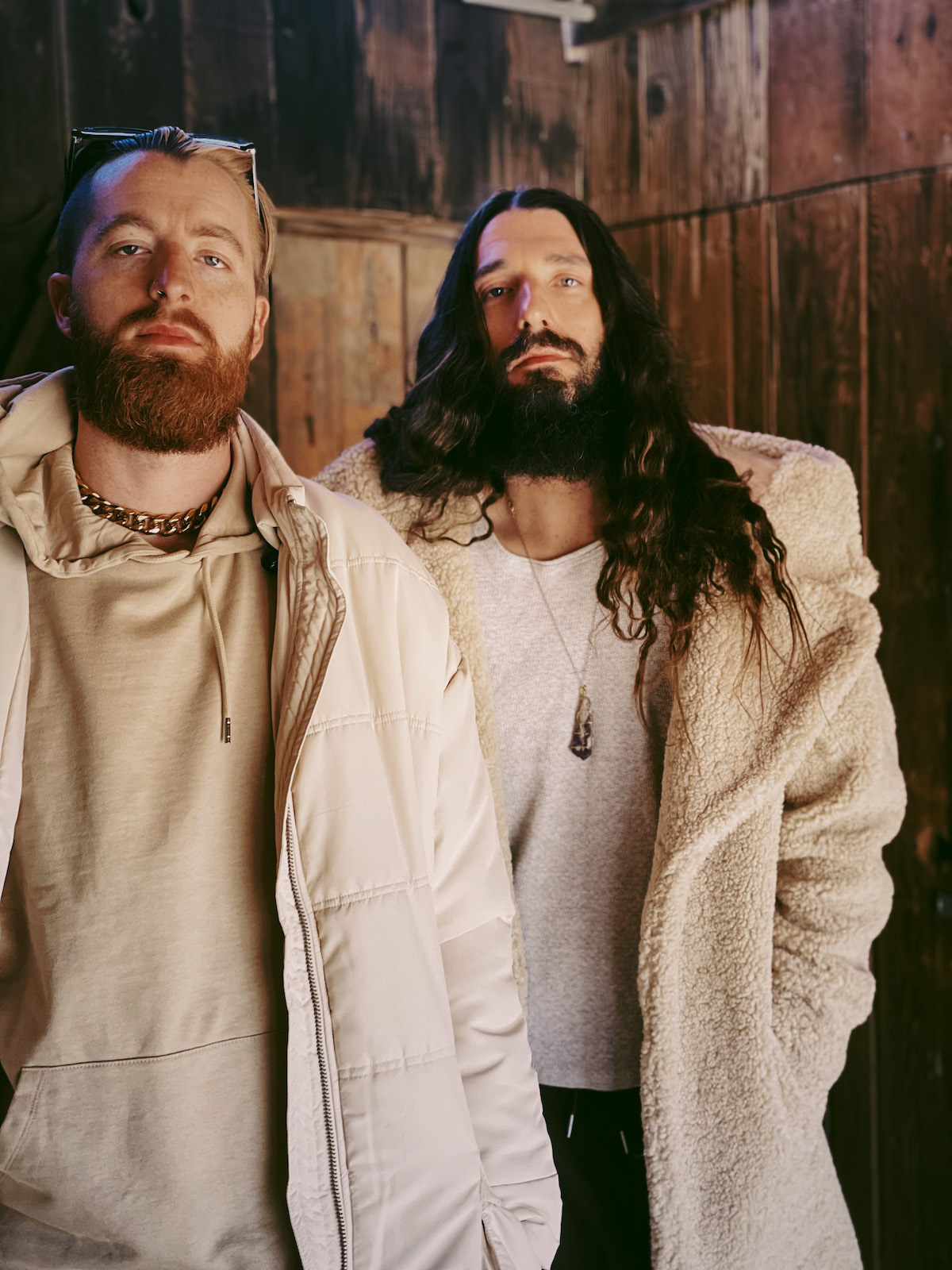
You guys were talking earlier about the different exercises you use to write songs. So did you really write “Middle Fingers” as if you were writing a song for Britney Spears?
David Butler: Yes. That was the first time working with our producer Dwight. He likes to come in very hard. His challenge with this was to make us write something that we’re not comfortable writing.
Matthew Brue: I didn’t want our music sounding like pop, so his assignment was, “You think it’s so easy to write these giant pop melodies? Well do it!” And I was like, “Well fine, I’ll fucking do it!”
I learned very quickly how hard it is to write a true pop melody. Like, if people hear songs on the radio and think they can do that…they’re so difficult to write. So by bringing up writing for Britney Spears, he was giving us a challenge with some direction.
That’s how the melody for “Middle Fingers” came about, which I think is hilarious. David and I learned a lot from those exercises. To write outside of MISSIO more often. To get better at trying new things, or new production styles to stretch our creative minds and process. I find that I’ll pull random things out that I had no idea existed in my brain, but there it is!
Wouldn't it be cool if Britney Spears wanted to cover “Middle Fingers?“
David Butler: Hell yeah.
Matthew Brue: All about it.
We're calling on you, Ms. Spears.
Matthew Brue: Yeah! Speak it into existence Ilana, come on!
I'm harnessing my spiritual powers. Hold on a sec… OK, it’s done! One last question for you: what adventures can we look forward to from MISSIO?
Matthew Brue: We have some festivals coming up, which is amazing. We can’t say officially which ones, yet, but just to be able to say we can play shows again is amazing. We have some collabs coming up. We’re doing something with Grandson right now — we’re working out the details, so tbd on that.
David Butler: We’re gonna keep writing and being creative. I think it’s hard to plan too far in advance these days. We’re both very excited to see some early signs that touring is going to start opening back up. We’re just trying to stay flexible while being creative, so no matter what, we’ll either be releasing more stuff or touring or both. It’ll just be a constant stream.
— — — —

Connect to MISSIO on
Facebook, Twitter, Instagram
Discover new music on Atwood Magazine
? © Missio Music, edited by Matthew Brue
:: Stream MISSIO ::

